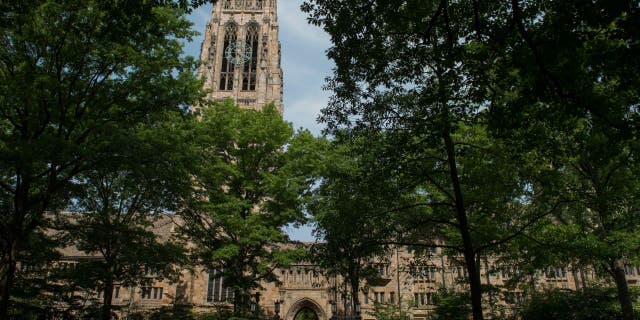

During the talk, Cardona asked the audience about the significance the numbers 163 and 170, which respectively represent the lengths of time that Yale and Harvard had law schools before U.S. News & World Report’s began ranking schools 30 years ago.
"You thrived" without U.S. News Cardona added. He said pulling out of the rankings applies not just to law schools, but to undergraduate colleges which he described as even "more urgent."
Cardona also encouraged law schools to recruit and accept more students from historically Black colleges, Hispanic institutions, community college and four-year institutions, stating 60 percent of Black college students and 50 percent of Latino students don’t graduate, which ranking "does nothing" to fix.
"If it costs you a spot on the rankings, wear it like a badge of honor," he said in the name of equity.
Critics of the magazine's influential ranking system argue it serves as more of a measure of privilege rather than educational quality.
In November, the law schools at Harvard and Yale, along with the University of California, pulled out of the U.S. News & World Report's rankings, suggesting the scores are biased against programs that aim to increase socioeconomic diversity, support lower-income students and encourage public service.
The U.S. News & World Report announced a "series of modifications" to its ranking system in January as part of an attempt to placate schools who had pulled out over concerns that the magazine was undermining "diversity" and "equity." The move prompted other law schools, medical schools and two undergraduate universities to also pull out of the magazine’s rankings.

Harkness Tower stands on the Yale University campus in New Haven, Connecticut, U.S., on Friday, June 12, 2015. Yale University is an educational institute that offers undergraduate degree programs in art, law, engineering, medicine, and nursing as well as graduate level programs. (Photographer: Craig Warga/Bloomberg via Getty Images)
U.S. News & World Report responded to Cardona's remarks at the "Conference on Best Practices for Law School Data" in an open letter Wednesday, which offered suggestions on how to "leave a lasting impact on students" by requiring "more data, not less."
"With nearly 40 years of experience and expertise in collecting and reporting on data from thousands of educational institutions, U.S. News is a trusted authority in compiling complex information and presenting it in a clear and accessible manner to students and the general public," the letter said. "Our rankings help aspiring students as they take their first step in ensuring their career opportunities, earning potential and quality of life."
The letter explained that U.S. News & World Report had worked over the past few decades "to making data more transparent and accessible," but "not all schools make their data readily available to the general public."

Harvard banners hang outside Memorial Church on the Harvard University campus in Cambridge, Massachusetts, on Friday, Sept. 4, 2009. (Photo by Michael Fein/Bloomberg via Getty Images)
U.S. News said it would continue "to fight for access, transparency and accountability of data that empowers students to make informed decisions," calling on Cardona to use his platform to demand that all schools "including elite law schools – provide open access to all of their undergraduate and graduate school data, using a common data set" so prospective students and their families can make meaningful comparisons between institutions.
